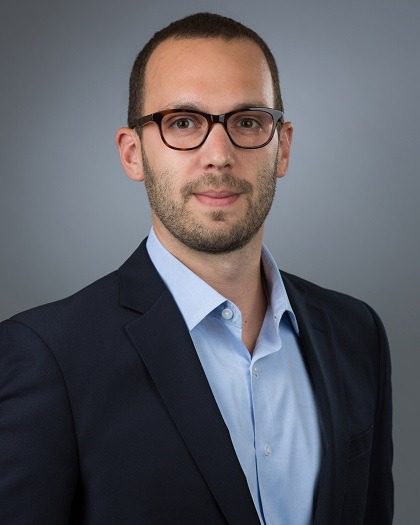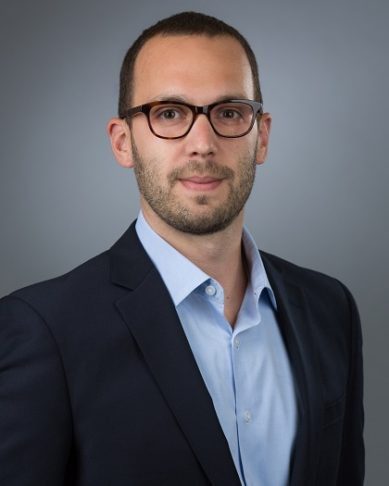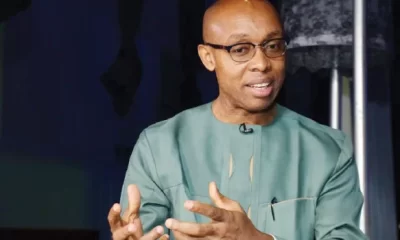Global Issues
Africa: Ignoring the Lion in the Room -By Chris Beatty

American presidential candidates are wrong. The greatest global terror threat isn’t ISIS, it’s instability in Africa.

Chris Beatty, KRL International LLC
In the past few weeks, Islamist terrorist groups across Africa – from Al Shabaab in Somalia to Boko Haram in Nigeria – have staged half a dozen terrorist attacks on foreign nationals, including a UN compound, and their own people. Boko Haram has killed upwards of 170 people since late January, and is currently the world’s deadliest terror group. Yet you would never know it from listening to the American presidential candidates.
The jihadist group Daesh (alternately referred to as ISIS, ISIL, or the Islamic State) has come to dominate the national security conversation in the United States, particularly in the presidential race. Hillary Clinton devoted the bulk of her first major foreign policy speech to outlining her strategy to defeat the terror group, while Bernie Sanders wants to build a coalition to be led by Middle Eastern allies. In his first TV ad, Donald Trump said he wants to “cut the head off of ISIS and take their oil”; Senator Cruz wants to “carpet bomb” areas occupied by Daesh. Marco Rubio said he bought a gun to defend his family in case Daesh invades Florida.
The candidates may have their guns pointed in the wrong direction. As recent attacks show, terrorism is a substantial threat in Africa, a region struggling with a youth boom coupled with a dearth of jobs and infrastructure. The changes Africa is currently seeing – a dramatically young and growing population, increasing connectivity via cell phones and social media – could, with the right interventions, be a blessing. They could also be a curse that fuels the rise of extremism.
While no African terror groups currently possess the resources or social media savvy that have fueled Daesh’s rise, they have demonstrated similar brutality and organisation and, if nothing changes, may soon have access to greater resources and human capital. If the tactics that Daesh has piloted were to take root on an increasingly unstable African continent, the results would be well beyond anything we’ve seen in the Middle East.
Nigeria, whose population is triple that of Iraq and Syria combined, is home to the world’s deadliest terror group. Boko Haram has pledged allegiance to Daesh, and continues to terrorise North-Eastern Nigeria. The group has killed, maimed, and kidnapped civilians, while using children as suicide bombers, soldiers, and sex slaves. A January 30 attack left 86 dead; the few survivors recounted militants burning children alive. On February 9th, two girls wearing explosive vests killed 58 at the Dikwa refugee camp.
There is evidence that the Islamist terror threat in Africa is also increasingly connected to Daesh. At a recent US-led military training exercise in West Africa, Brigadier General Donald Bolduc, commander for special operations for Command Africa, told reporters that al Qaeda in the Islamic Maghreb (AQIM) has been working more closely with Daesh in North Africa. The next day Nigerian intelligence officials arrested Abdussalam Enesi Yunusa, an alleged recruiter for Daesh, who was attempting to “indoctrinate and recruit susceptible youths in the country.”
As President Obama noted in his State of the Union address, today’s threats come less from “evil empires” and more from failing states. According to the Fragile States Index, 19 of the 25 most fragile states in the world are in Africa, a group that includes Somalia (#2) and Nigeria (#14). Such instability has drastic impacts on economic and educational opportunities for African youth; more than 1.8 million children are out of school in South Sudan, the world’s most fragile state.
Even absent conflict, African countries face a set of unique demographic and economic challenges. More than half of global population growth between now and 2050 is expected to occur in Africa. Of the 1.2 billion Africans, 60 percent are under 25 and 41 percent are under 15. With African economies struggling from an over-reliance on extractives and the drastic fall of commodity prices, there are not enough jobs to go around. As we have seen elsewhere, young people who lack opportunities are vulnerable to the false promises of radical militants.
Of course this young, connected, entrepreneurial population could present an enormous opportunity, leading Africa to blossom as the next great economic frontier. But Africa’s youth need support to realise this future. Catalytic infrastructure investments would support the economic diversification and industrialisation required to expand job opportunities. Strengthening banking systems would ensure the access to capital required to spur innovation.
There are many different ways the US could support Africa’s development, and help the continent achieve the bright future it deserves. Strategic infrastructure support, trade and investment promotion, and institutional capacity building are all viable options, and certainly each of the presidential candidates would have a different approach. The biggest problem is that none appears to have even considered what that approach should be.
In contrast to Daesh, Africa has been completely absent from the campaign trail; none of the candidates have articulated an Africa policy. A failure to perceive the next threat is as dangerous as the inability to address the current one. American voters should demand a leader with vision. One with the foresight to know that investments in development today are far cheaper, by every measure, than responding to threats tomorrow.
The absence of Africa from the American security conversation is a mistake with global ramifications. Ignoring a continent of 1.2 billion people, poised to rise fast or fall hard in the coming decade, is not only a missed opportunity, it could lead to the next great global terror threat.
Chris Beatty is the Managing Director of KRL International, a firm that advises governments and companies on political, economic and security risk mitigation. He has worked and traveled extensively throughout Africa and is based in Washington, DC.



















